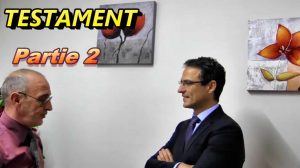I am retired and I want to be a resident in Spain
Normally, all residents in an EU state must declare, and pay, their taxes in the country in which they reside most often (more than 6 months per year).
Also, if you decide to buy or rent real estate in Spain, and your intention is to come and live there permanently, or for more than 6 months a year, you should know that your tax status will be “Spanish tax resident”. And, regardless of the date of the calendar year (from 01/01 to 12/31), as soon as you spend more than 6 months there, you will be considered “tax resident in Spain”.
From this moment, you will be obliged to declare in Spain, all of your assets whether they are in Belgium, France, Switzerland, etc. as well as your income as long as:
- Income tax (salaries, pensions…): For income of more than €12,000 (if tax already withheld at source) or €22,000 (if no withholding tax {< em>see more below the text}) per year
- Wealth tax (value of your movable or real estate assets): If their total value is more than 700,000 EUR
A) The income tax taxation system in Spain
As in France, Belgium, Switzerland, etc., the way of declaring is very similar. You must declare your real estate, bank accounts, financial products, etc. Then, these goods may be subject to reductions, bonuses, etc. On the final amount, after these reductions, a tax applies based on a rate, as follows:
- €0 – €12,450: 2015: 20% 2016: 19%
- €12,451 – €20,200: 2015: 25% 2016: 24%
- €20,200 – €34,000: 2015: 31% 2016: 30%
- €34,000 – €60,000: 2015: 39% 2016: 37%
- More than €60,000: 2015: 47% 2016: 45%
How are PENSIONS considered in income tax?
Public pensions (State pensions paid to civil servants): In the case that you have been a civil servant in the public sector, whether from the State of your country of origin or from the State Spanish, your pensions will be taxed in your country of origin and not in Spain. EXCEPT!!! If you receive a pension from several different funds (old age pension paid by the pension fund, + disability pension paid by another fund).
The amount obtained by these public pensions, although tax free in Spain, will be added to the rest of your income to form the tax base under Spanish law”
- Private pensions (All other cases such as private pension, company income, financial investment income, etc.). These will be taxed in Spain. If tax deductions have already been taken from one of these incomes at its source, in this case it will be necessary to indicate this in the Spanish declaration in order to avoid double taxation, in the event that this pension comes from:
- France
- Switzerland
- Belgium
- Luxembourg
- Rental income obtained from real estate abroad: These must be paid in the country in which the property is located, and also declared in Spain to determine if, once applied the possible Double Taxation Convention (in the case that one exists), you must pay some of the taxes in Spain or consider the amounts of income to increase your annual taxable base in Spain.
- Similarly salaries as an employee obtained from a company abroad (Ex: you worked in France and have your tax domicile in Spain)
- But, self-employed salaries may be taxable in Spain.
- Remaining income may be taxable in Spain
But, VERY IMPORTANT, you must declare this tax in Spain only if your annual income is greater than 22,000 EUR.
So, if all your income is less than €22,000 per year, you will not have to pay anything.
If you receive a pension, + income from movable property such as bank interest etc., which have all been taxed at source, in your country, by your employer, the state, or the bank respectively, and which you have already paid your tax, you will generally not have to pay extra as long as the combined income is not more than the basic tax rate of EUR 22,000.
The maximum basic amount is €22,000 of total gross annual income, therefore cumulative, from your employer and pensions obtained in your country or abroad.
Donations, if the total addition of your income is less than 22,000 EUR, you do not have to pay anything, and there is no obligation to submit the declaration for income tax.
But, BE CAREFUL!!! This limit drops to 12,000 EUR from 2015 in the following circumstances:
– The income was not taxed at source. And to say, that you did not pay taxes for this income in the country of origin.
– The income comes from more than one source (for example, two jobs or two pensions, or job + pension), and the annual amount of this other pension is greater than 1,500 EUR per year. In this case you will have to complete a tax declaration and pay taxes if you have more than €12,000/year and your 2th pension exceeds €1,500/year! On the other hand, if this other source of income or pension is less than €1,500/year, you can still use the €22,000 rule, so pay nothing.
AN EXAMPLE:
Belgian retiree (Mr. A) civil servant, 67 years old, with two pensions, married to Mrs. B, who has no income or pension:
- Public pension (Mr. A): 13,200 EUR/year
- Private pension (Mr. A): 2,556 EUR/year
TOTAL: 15,756 EUR
In this case “Mr. A” will have to submit his declaration and pay income tax in Spain because:
- He has two pensions, and the second is more than 1,500 EUR per year (in his case: 2,556 EUR)
- The total amount is more than 12,000 EUR (13,200 + 2,556=15,756)
1.- TAXABLE BASE:Then, in Spain, he will have a taxable tax base of: 13,200 + 2,556 =15,756 EUR
2.- REDUCTIONS IN THE TAX BASE – exempt portion
This amount must be reduced by the “exempt portion”. This amount which, according to Spanish law, must be used to reduce the tax base of the tax.
The way to calculate the exempt portion is as follows:
- In general, the minimum base for all people is 5,151 euros per year.
- For people over 65, this amount will be increased by 918 per year. So, 5,151 EUR (general) plus 918 EUR (+ 65 years) = 6,069 EUR per year.
- For people aged 75, this amount is increased by 1,122 per year. So, 6,069 + 1,122 = 7,191 EUR per year.
But, in the event of a joint declaration (for example, Mr A + Mrs B), thee amount will always be 5,151 euros per year, regardless of the number of members , however taking into account the personal circumstances of each spouse (age, disability, etc.).
3.- TAX RATE
Once obtained, the taxable base of the tax less the exempt portion, the final amount (or “Liquidable Base>), will be taxed with the following percentage:
Liquidable Basis:
- €0 – €12,450: 2015: 20% 2016: 19%
- €12,451 – €20,200: 2015: 25% 2016: 24%
- €20,200 – €34,000: 2015: 31% 2016: 30%
- €34,000 – €60,000: 2015: 39% 2016: 37%
- Over €60,000: 2015: 47% 2016: 45%
The tax calculation will be done as follows:
Example 1.- If “Mr. A” presents an individual declaration, without including his wife:
15,756 EUR (Taxable Base) * 25% (Tax Rate) = 3,939 EUR
“Exempt portion” reduction: 6,089 EUR * 25% (Tax rate) = 1,522.25 EUR
3,939 EUR – 1,522.25 EUR EUR = 2,416.75 EUR – This will be the amount to pay for Mr. A’s individual declaration.
Example 2.- If “Mr. A” presents a joint declaration for him and his wife (who has no income), or with a limit of 1,500 EUR as a maximum, she can also use her exempt portion.
3,939 – 1,522.25 (exempt portion of Mr. A) – 1,522.25 (exempt portion of Mrs. B) = 894.46 EUR – This will be the amount to pay for the declaration of Mr. A, jointly with Mrs. B).
4.- TAX REDUCTIONS
Once the amount to be paid is obtained, it will be reduced by various data such as, for example, “Double Taxation”, The income tax having already been withheld in the country of its source. This amount already paid in your country of origin can be deducted from the tax payable in Spain.
In the case of the example, if Mr. A’s pension had tax withheld at source, and paid in Belgium of 1,200 EUR for the year 2015, this amount can be deducted from the 2,416.75 EUR (individual declaration) or EUR 894.46 (in the case of joint declaration).
There are also other possible reductions, such as the use of the house in Spain as “habitual residence”, which must be calculated and confirmed on an individual basis.
FINALLY and to conclude, Remember that:
- This is just an example.
- That we are in 2016 and that the computer data exchange services of all States are perfectly operational, the Ministries of Finance having the best software on the market.
- Which tax legislation is one of the most complicated
- Billionaire Warren Buffett said: “Price is what you pay. Value is what you get. “
- That only a tax specialist can advise you, represent you or defend you against the Ministry of Finance.









